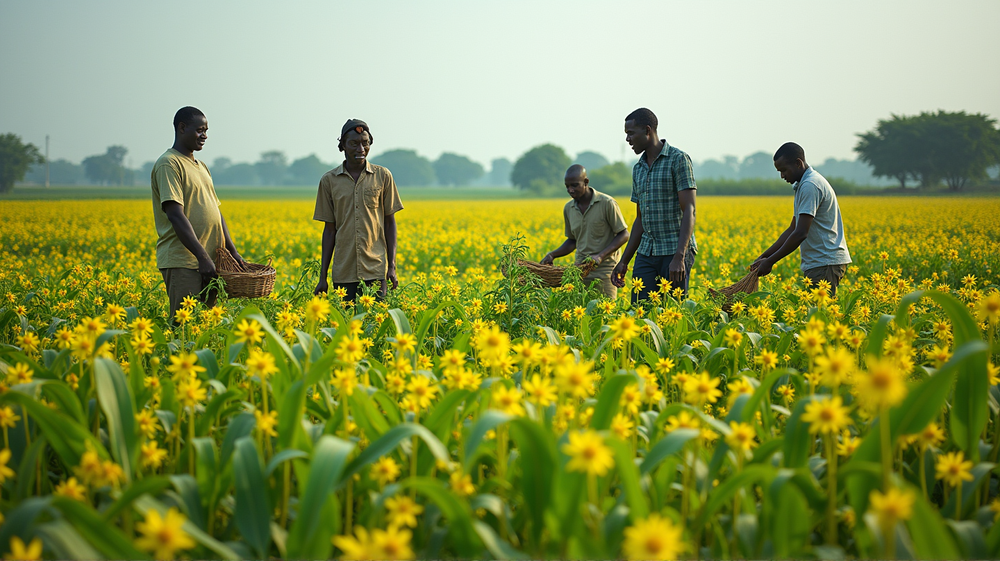FCT Farmers Champion the Future with GM Cowpea and TELA Maize
Farmers in the Federal Capital Territory (FCT) of Nigeria are turning to modern agricultural technologies to address the challenges of productivity and food security. Among the innovations embraced are genetically modified (GM) crops such as Cowpea and TELA Maize. These crops promise to revolutionize the agricultural landscape, offering higher yields and increased resistance to pests and climatic challenges.
The Dawn of GM Crops in Nigeria
The introduction of GM Cowpea and TELA Maize is seen as a significant step towards sustainable agriculture in Nigeria. These genetically engineered crops have been modified to enhance their resistance to common agricultural pests and adverse weather conditions. With the population of Nigeria steadily increasing, the need for reliable food sources becomes ever more pressing.
Why FCT Farmers Support GM Cowpea
For farmers in the FCT, GM Cowpea is a game-changer. Traditional cowpea is susceptible to various pests, which can drastically affect yield. The genetically modified variant has been designed to withstand these challenges, thus ensuring a more consistent and abundant harvest. According to Science Nigeria, adopting GM Cowpea has already begun to show promising results, improving both the livelihood of farmers and the availability of a staple food crop.
TELA Maize: A Solution for Climate-Resilient Farming
Similarly, TELA Maize presents a viable option for climate-resilient farming. Known for its tolerance to drought and resistance to stem-borers, TELA Maize is particularly suitable for areas affected by erratic rainfall patterns typical of the Nigerian climate. As reported in Science Nigeria, this maize variant drastically reduces losses associated with adverse weather, providing a stable income for farmers and a steady food supply for consumers.
The Journey Towards Acceptance
The journey towards embracing GM crops has not been without its hurdles. Concerns about safety and ecological impact have been at the forefront of public and governmental discourse. Nevertheless, continuous education and evidence-based advocacy have played crucial roles in shifting perceptions. Farmers who have trialed these crops often share their success stories, noting the tangible benefits realized in both yield and economic terms.
A Promising Outlook for the Future
The future of agriculture in FCT and broader Nigeria looks promising with the support for GM Cowpea and TELA Maize gaining momentum. With these innovations, farmers are not only enhancing their production capabilities but are also positioning themselves as pioneers in the field of agricultural biotechnology. As stated in Science Nigeria, the success of these crops could serve as a catalyst for further biotechnological advancements in the country.
The adoption of GM crops is more than just an agricultural trend; it’s a necessary evolution towards securing a future where food scarcity is a challenge to be met and conquered. The resilient efforts of the FCT farmers highlight the potential for biotechnology to meet the pressing needs of today’s agricultural demands.




